In conversation with Dr Sarah Crowther: Research Fellow
Meet the Department 16 September 2019
I spoke to Dr Sarah Crowther, Research Fellow in Planetary Science, about everything from zapping space rocks with lasers, to xenon, to public engagement, and, Bon Jovi.
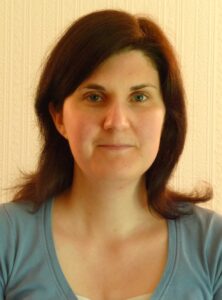
Can you describe your research for the layman?
I zap space rocks with lasers!
To explain that a little more, what we are doing is looking at the composition of gas inside tiny pieces of extra-terrestrial material, usually meteorites, to try and learn more about the Solar System – how it formed, how it evolved, how asteroids evolved, whether they underwent impacts from other bodies, and what that can tell us about the evolution of the solar system. A lot of the work I do is age-dating meteorites. We determine an age from them and this can tell us about the thermal history of the asteroid that they originated from.
Jemma: What’s your oldest meteorite?
Most meteorites from asteroids are about 4.5 billion years old! The very oldest components found in meteorites have been dated to be 4.567 billion years old.
The work I do involves looking at an element called xenon (Xe) within these meteorites and other materials. If you think of the periodic table, xenon (Xe) is in the far right hand column and it’s what we call a noble gas. So that means it’s not reactive, it doesn’t form compounds with other elements. On the earth or in extra-terrestrial materials it’s sitting there as an element. There’s not much of it which makes it very hard to measure, but it’s very useful when we can measure it. It has lots of different isotopes. Isotopes are different forms of the same element, so they have the same number of protons but different numbers of neutrons, which gives them different masses. Xenon has nine of these different forms or different isotopes, and different physical processes such as radioactive decay or interaction with cosmic rays in space produce different amounts of the different isotopes. By measuring the isotope ratios we can see what processes have contributed to the overall composition of the gas trapped in a sample.
We can also use xenon isotopes for dating the meteorite. One isotope of iodine (129I) had a short half-life of about 16 million years in the early Solar System, and it decayed to produce an isotope of xenon (129Xe). Before we analyse the samples we artificially irradiate them with neutrons and that converts another type of iodine (127I) to another type of xenon (128Xe). The ratio of these two types of xenon is proportional to the ratio of the two types of iodine, and from that we can determine when the clock was set in different samples. It is based on the same principles as carbon dating, which is used to date archaeological finds, but we’re using species with different half-lives and looking further back in time.
You’re involved in loads of public engagement activities. Can you tell me why you do it – what compels you.
There are various different reasons people have for doing public engagement. I think the work we do is really interesting and really exciting, and that we should share that with other people and make it accessible to everyone. There’s too many people out there who say “science is too hard”, “I can’t do science”, or “science isn’t relevant, why should I bother”, but actually it’s really interesting and really exciting. If we can convince just a few of those people that they can do it, or convince a few children who might not be enjoying their science lessons at school that it is exciting, interesting and worthwhile, and that they can do it, then I think that’s a really important and worthwhile thing to do.
Other reasons people do public engagement might be that they are expected to do public engagement – our research is funded by the public, so the public have a right to know how that money is being spent and what we are doing. Other people try and influence policy and decision making, but I just want to get people interested and excited about science. If a child comes to an event and what we’ve done with them makes them go and pick up a science book from the school library, and they decide, well, actually biology is even more interesting – I don’t care, at least we’ve got them interested and they’ve picked up that book and it might be that trigger that makes them go off and be a biologist – they don’t have to come and do planetary science! Don’t let teachers or parents tell you that you can’t do it!
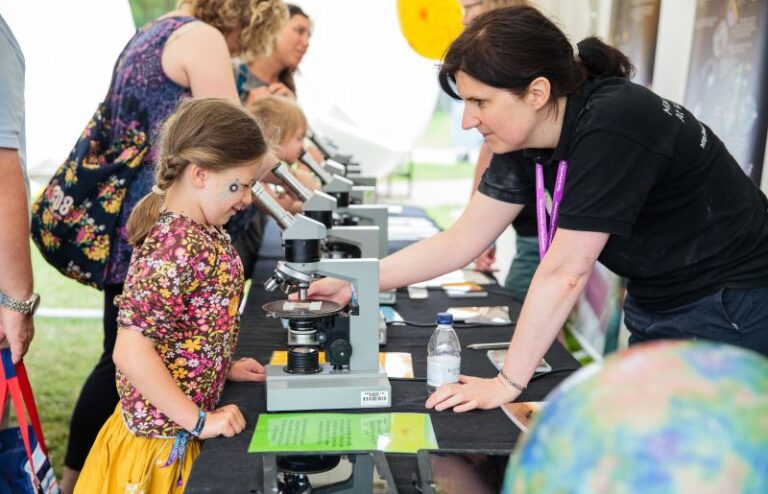
Can you describe your role in the Department for me?
My role is primarily doing research – I’m employed as a researcher on a grant that is funded by STFC (Science and Technology Facility Council). I also get involved in a lot of public engagement work, as mentioned, and I’ve ended up organising all of the activities and events for our research group.
Jemma: You won an award recently didn’t you?
I did! The Royal Astronomical Society’s Annie Maunder Medal for Public Engagement. I got to go to a nice presentation ceremony at the National Astronomy Meeting in Lancaster and meet Jon Culshaw!
Jemma: Are you involved in teaching at all?
I’ve done a little in the past – second year tutorials mainly. I’ve also trained students in the lab, teaching them how to operate the instruments, analyse their samples, and process the data.
Jemma: What would you like to do in the future?
I would like to continue with the research as I do enjoy that, but I would also like to have some time dedicated to doing public engagement activities because there’s a lot more that we could do, a lot better, if we had the time and money dedicated to do it. I don’t think it exists, but I’d like to do a job that’s half and half – half research, half public engagement.
Where did you attend university and what did you study?
I went to Oxford University and I studied Chemistry for my undergraduate degree, which is a four year course. I spent three years doing lectures and practicals, and the whole of the fourth year is spent doing a research project. It was a little different to the fourth year here at Manchester where students spend time on a research project but also attend lectures and classes. I thought that was a really good opportunity to see if people liked research, because if they did like it, it showed you that! But if you didn’t like it, it was only one academic year, so it wasn’t too long – you weren’t committing yourself to a three year PhD without knowing anything about it. Then, I did my PhD – also at Oxford, and also in Chemistry, carrying on in the same field that I did my undergraduate fourth year project in, which was electronic spectroscopy – it was using lasers to find the energy levels of small molecules to find out how much energy they need to vibrate or bend. From that we can learn things about the bond lengths and the bond angles of the molecules.
Jemma: What did you do after your PhD?
Some people apply for jobs while they’re finishing up their PhD and some people decide to wait until afterwards, because writing up a PhD and applying for jobs at the same time…they are like two full-time jobs really! So I decided to wait until I finished my PhD, then I started applying for jobs, and I applied for all sorts of things, all over the country, and it was somewhat fortuitous I think that this job came up, because I’m from Manchester originally so it’s really nice to be home; it was using some of the techniques that I’d used in my PhD but applying them to a different topic. So, using the lasers to excite and ionise small molecules or atoms, but this time, instead of trying to learn about the molecules themselves, we were using that as a tool to then be able to ionise the atoms and apply this to a different technique, this time learning about the Solar System, which is something I had always been interested in.
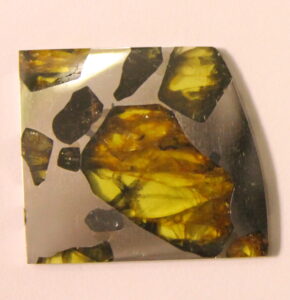
Pictured above is a meteorite named Esquel, from Chubut, Argentina. Found in 1951, before Stony-Iron. Pallasite (PMG). Total known weight ~ 755kg.
Do you have a favourite film/book/band/sport/TV show?!
My favourite band is Bon Jovi…which everyone else thinks is really sad! But, I like them, and I’ve seen them several times live and I think they’re brilliant. I like watching football, I’m not very good at playing it – I support Manchester United. I tried to watch quite a bit of the women’s world cup recently.
Jemma: Kind of a dumb question, but what do you think about space films?! Like The Martian…
The Martian is brilliant, I really like both the film and the book. Some people get a bit worked up when things are not absolutely accurate, like in Gravity, a lot of people got really worked up about inaccuracies in Gravity. But, I think you’ve got to allow filmmakers and storywriters a bit of poetic licence, as long as it’s not too far off – not completely bonkers – then let them use a bit of imagination! Interstellar was a bit odd when they got to the black hole and it was essentially a library…I did find that quite strange!
What A levels did you study, and how are they relevant for Earth Sciences?
I did Chemistry, Physics, Maths, Further Maths and General Studies. I think Chemistry, Physics and Maths are all really useful, not just for doing Earth Sciences, but if you want to go and study any scientific subject. A lot of inorganic chemistry comes into the study of minerals. Maths is useful in any science degree you do, and Physics is also useful for the planetary science topics – thinking about astronomy and astrophysics and so on.
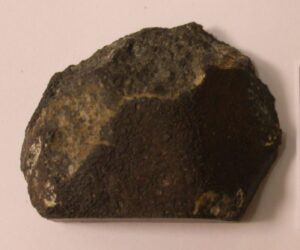
Pictured above is a meteorite named Allende, from Chihuahua, Mexico. This meteorite fell on 8th Feb 1969. Carbonaceous Chondrite CV3. Total known weight ~ 2000kg.
What advice would you give to your younger self/what advice would you give to anyone thinking of applying to university?
I would say to my younger self or anyone currently thinking about what A level or university subjects to study – to do the subjects that you enjoy and you think you can do, that you think you’re good at, because you’re going to spend a long time studying these subjects and if you don’t enjoy it you’re not going to be happy at all. And while to some extent you should take advice from parents and teachers, you’ve also got to do what you want to do. So, if you really want to study Chemistry or Physics or whatever it is and they’re telling you that you can’t or shouldn’t because it’s not going to get you a job; or that you shouldn’t do that because “that’s not what girls do”, ignore them and do it because you want to do it! Don’t let the fact that the Physics class is going to be 90% boys and you’re the only girl put you off. The number of girls taking Physics A-level is incredibly low. Only 20% of A-level entries are girls, and there’s no reason it shouldn’t be much closer to half and half. There’s no reason any subject shouldn’t be close to half and half.
Jemma: do you know why? Is it tradition or…?
I think it’s tradition, and role models, and people not seeing potential uses of those subjects, or not seeing people like them working in those types of careers. There is an initiative called People Like Me which I think is aimed predominantly at girls in secondary school – it’s not necessarily to force them to study Physics, but to show them about the kind of careers there are in sciences or that use the skills acquired from studying science at school/university, and that people who do those, are people like them.
At school, science lessons cover Chemistry, Physics, Biology, and that’s it. And you don’t realise that there’s so much beyond that. How many schools do GCSE or A level Geology, for example – it’s very, very few. So many A-Level students don’t know about the subject beyond that, and don’t know about the overlap between them, because at school they are discreet subjects. And yet it is possible to study subjects like biochemistry at university, that’s got a lot of overlap between chemistry and biology. In some universities, groups like ours, looking at the evolution of the Solar System, are in the Physics Department or the Chemistry Department, whereas here in Manchester we’re based in the Department of Earth and Environmental Sciences. The work we do incorporates aspects of geology, chemistry and physics, so doesn’t just fit in one discrete box. Schools and colleges have limited time and limited resources so Chemistry, Physics and Biology are the main sciences taught in school, but there is so much more beyond that, that people just don’t know about. If you’re interested in studying a science subject, try to find out what else is available – there’s loads on information about the different courses available on the University website.
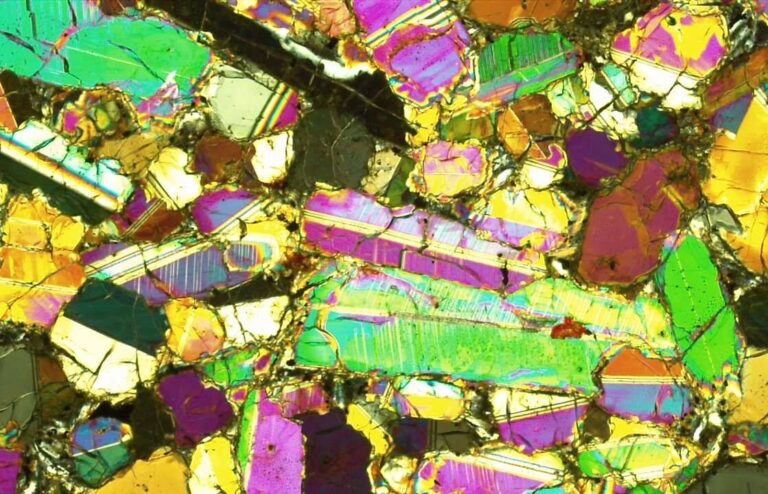
Sarah is also steering the Planetary Science group’s online presence: from social media to blogs, see how you can connect below.
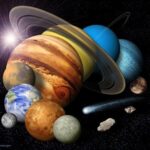
Earth and Solar System Twitter: @EarthSolarSystm https://twitter.com/EarthSolarSystm
Earth and Solar System Facebook: https://www.facebook.com/earthandsolarsystem
Earth and Solar System Instagram: https://www.instagram.com/earthandsolarsystem/
Earth and Solar System blog: https://earthandsolarsystem.wordpress.com/
Earth and Solar System YouTube channel featuring The Cosmic Cast Podcast: https://www.youtube.com/channel/UCpVdr9UbEN0gB-WOaGmBOKA
Interview conducted by Jemma Stewart.
astronomyastrophysicschemistrymathsmeteoritesphysicsplanetary sciencePlanetary Science PathwayRoyal Astronomical Societysciencestudyundergraduatexenon



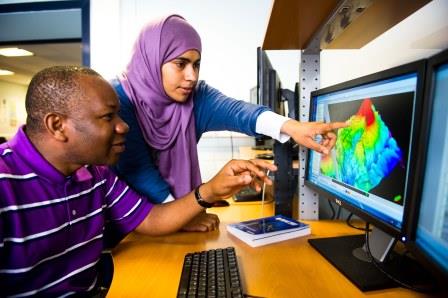
Leave a Reply